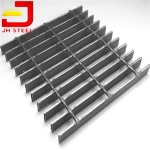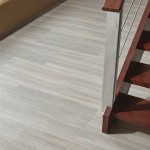Is Bamboo Flooring Better Than Hardwood?
When choosing flooring for your home, hardwood is often the first choice for its classic elegance and durability. However, bamboo flooring has emerged as a compelling alternative, offering a range of benefits that rival traditional hardwoods. This article explores the key differences between bamboo and hardwood flooring, examining their pros and cons to help you make an informed decision for your home.
Durability and Hardness
Both bamboo and hardwood flooring are known for their durability, but they differ in their hardness and resistance to wear and tear. Bamboo is generally stronger and harder than most hardwoods, with a Janka rating of 1180-1380, compared to an average rating of 1000 for hardwoods. This means that bamboo flooring is less susceptible to dents, scratches, and other forms of damage, making it a better option for high-traffic areas like kitchens and hallways. However, some hardwoods, such as Brazilian cherry and hickory, have higher Janka ratings than bamboo. Ultimately, the specific species of wood and bamboo used will determine the final hardness rating of the flooring.
Sustainability and Environmental Impact
Bamboo flooring stands out for its environmentally friendly credentials. Bamboo is a fast-growing grass that can be harvested every 3-5 years, making it a sustainable and renewable resource. This rapid growth cycle significantly reduces the environmental impact compared to traditional hardwoods, which require decades to mature. The harvesting process of bamboo is also less harmful to the environment than logging operations for hardwoods. In contrast, many hardwood species are slow-growing and require extensive deforestation, contributing to habitat loss and carbon emissions. When selecting hardwood flooring, consider sourcing wood from sustainably managed forests and look for certifications like FSC (Forest Stewardship Council) to ensure responsible and ethical practices.
Appearance and Aesthetics
Bamboo and hardwood flooring offer distinct aesthetic appeals. Bamboo flooring comes in a variety of colors and finishes, from light and airy to rich and dark tones. Its natural grain patterns create a unique and elegant look, often resembling a traditional hardwood floor. However, bamboo flooring tends to have a more consistent appearance with less variation in color and grain compared to hardwood. Hardwood flooring, on the other hand, offers a wider range of wood species with unique grain patterns and colors, providing more options for matching your desired aesthetic. Ultimately, the choice between bamboo and hardwood flooring boils down to personal preference and the desired look for your space.
Cost and Price
The cost of bamboo and hardwood flooring can vary depending on the specific species and quality. In general, bamboo flooring is often more affordable than hardwood. This is due to the faster growth rate of bamboo, which makes it more readily available. However, certain types of bamboo flooring, such as those with unique finishes or engineered constructions, can be more expensive than some hardwoods. Hardwood flooring prices can fluctuate significantly, with rare and exotic species fetching higher prices. When comparing prices, it's essential to consider the total cost, including installation, finishing, and potential maintenance expenses.
Maintenance and Care
Both bamboo and hardwood flooring require regular maintenance to maintain their beauty and longevity. Bamboo flooring is relatively easy to clean and care for, requiring sweeping or vacuuming regularly and occasional mopping. However, bamboo is sensitive to water damage, so it's essential to avoid excessive moisture and spills. Hardwood flooring often requires more specialized care, including periodic sanding and refinishing. The frequency of refinishing depends on the type of wood and the amount of wear and tear. Overall, the maintenance requirements for bamboo and hardwood flooring are similar, but bamboo may require slightly less intensive care.
The decision between bamboo and hardwood flooring ultimately comes down to individual preferences and specific needs. Both offer various benefits and drawbacks. While bamboo flooring stands out for its durability, sustainability, and affordability, hardwood flooring provides a wider range of options and traditional appeal. Evaluating your priorities and weighing the pros and cons of each choice will guide you toward the best flooring option for your home.

Bamboo Vs Hardwood Flooring Auten Wideplank

Introduction To Bamboo Flooring Bona Ca

Bamboo Vs Hardwood Flooring Difference And Comparison Diffen

Bamboo Flooring Vs Laminate Is Eco Friendly Environmental

Fixr Com Bamboo Vs Hardwood Flooring Pros Cons Comparisons And Costs

Bamboo Flooring Pros And Cons Vs Hardwood Laminate Comparison Chart

Bamboo Vs Hardwood Flooring Auten Wideplank
Pros And Cons Hardwood Floors Vs Bamboo Flooring Builder

Bamboo Flooring Vs Hardwood Urban Customs

What S Better For The Environment Hardwood Cork Or Bamboo Pro Flooring
Related Posts








